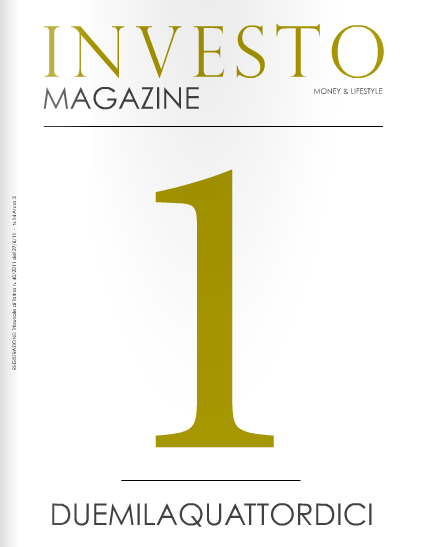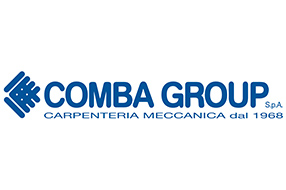1) Chi, Cosa e Dove. (Chi è Paolo Tenna, cosa ha fatto, le sue ambizioni dove vuole arrivare)
2) Nel 2005, lei insieme a Simona Izzo e Ricky Tognazzi, ha fondato TOP TIME e ha collaborato con produzioni cinematografiche attraverso operazioni di product placement.
Quanto questo modo di fare cinema in maniera economica si è dimostrato vincente per ottenere massima visibilità ad una frazione dei costi della pubblicità tradizionale?
3) L’industria cinematografica della nostra regione ha raggiunto vette internazionali, in quale modo il contributo di Film Commission, attraverso produzioni spesso necessitanti di un notevole sforzo economico, si è dimostrato fondamentale per accrescere il magnetismo sia del piccolo che del grande schermo?
4) Esistono altre modalità d’intervento affinchè il mercato del cinema non si paralizzi
5) Ci sono progetti futuri sui quali FIP intende ancora investire?
1-2) L’amore del cinema nasce da bambino quando con un mio amico facevamo di tutto per riuscire, una volta sottratta a sua madre una tessera “speciale” che permetteva la visione illimitata di film per 2 persone, di vederne il più possibile anche di seguito. Credo in un week end invernale di averne visti 7. Mi sono occupato sucessivamente di comunicazione pur mantenendo l’interesse per la settima arte e poi nel 2004 con l’ingresso del decreto Urbani relativo al product placement ho chiesto a Ricky Tognazzi e Simona Izzo con cui l’anno prima avevo fondato un’agenzia di pubblicità “tradizionale” di iniziare ad occuparcene con l’intenzione di colmare le mie lacune sul mondo della produzione cinematografica attraverso l’esperienza che avrei maturato sui set cinematografici dei film che stavo per dirigere in cambio avrei portato in dote le mie esperienze nel settore del marketing. Da quel giorno ho seguito oltre 30 progetti cinematografici coinvolgendo centinaia di brand.
3) Film Commission Torino Piemonte è stata la prima Fillm Commission in italia ed è riconosciuta come un’eccellenza per la capacità di gestire al meglio le produzioni che vengono a girare in Piemonte. La possibilità di far sistema con le istituzioni locali permette di gestire al meglio la logistica di produzione (permessi, location manager, assistenza tecnica e di rendere accessibili, sia in termini di servizi che a livello di costi, alcune location pubbliche che nelle altre regioni sarebbero di difficile accesso.
4-5) Il meccanismo del tax credit esterno, destinato alle imprese private esterne al settore cinematografico, è sicuramente uno strumento interessantissimo che permette di compensare la diminuzione progerssiva dei finanziamenti pubblici cdando la possibilità ai privati di intervenire finanziariamente nei progetti cinema tutelando il propiro investimento e capitalizzando al meglio attvità di comunicazione e promozione che il cinema offre.
FIP diventa il riferimento per Film Commission per le grandi produzioni, con la funzione di collettore di capitali per futuri investimenti, contattando le maggiori realtà imprenditoriali del Piemonte e sensibilizzandole sui benefici fiscali e finanziari derivanti dall’entrata in vigore e successiva proroga del “Tax Credit Esterno”.
L’accresciuta disponibilità finanziaria del Piemonte – derivata appunto dalla somma di capitali pubblici e capitali privati – consentirà di attrarre sul territorio produzioni cinematografiche di alto profilo, con considerevoli budget di produzione: questa tipologia di progetti (si veda ad esempio il positivo investimento operato da FIP nell’ultimo film di Claudio Bisio, Benvenuto Presidente, il cui successo commerciale ha superato gli 8,5 milioni di Euro di incasso al box office) garantirà i rientri economici attesi sia per FIP che per gli investitori privati ed attiverà un favorevole circuito di capitali che permetteranno di reinvestire in nuovi e simili progetti.
Le risorse economiche della Regione Piemonte, impiegate in FIP, e le risorse economiche del settore privato locale si sommano tra loro producendo un effetto moltiplicatore per la ricaduta territoriale degli investimenti effettuati nel cinema.1)Who, what, where (Who is Paolo Tenna, what did he do, what are his ambitions and hi goals)
2)In 2005, together with Simona Izzo and Ricky Tognazzi, you founded TOP TIME and you cooperate with film production through product placements.
Is this inexpensive way of making movies a winning solution as far as visibility, compared to half the costs for traditional advertising?
3) The film industry of our region has reached international levels, how fundamental was the Film Commission support, often financing expensive productions, to increase the attractiveness to both small and big screen?
4) Are there any other methods of intervention to prevent the movie industry paralysis?
5)Are there any future projects in which FIP is willing to invest?
1-2)My love for movies started when I was a child; a friend of mine and I used to try everything to be able to watch as much movies as possible on a row, after stealing his mom’s “special” movie card that allowed to watch unlimited films for two people. On a winter weekend I think we watched 7 films. I then worked in communication while maintaining the interest for the seventh art and then in 2004, with the introduction of the Urbani decree on product placement, I asked Ricky Tognazzi and Simona Izzo, with who the year before I started a “traditional” advertising agency, to start working on it so that I could fill in my gaps in movie production through the experience I would have acquired on movie sets I was about to direct; in return I would have brought my experience in marketing. Since that day, I have worked on over 30 film projects involving hundreds of brands.
3)The Piedmont Turin Film Commission was the first one in Italy to be established and it is well recognized for its ability to better manage the productions that come here in Piedmont to shoot. The possibility to work with local authorities, it allows to better handles all the logistics of a film production (permits, local managers, technical support) and to make accessible, both in terms of services and costs, some public locations that, in the other regions, would be difficult to access.
4-5)The External Tax Credit, for private companies outside the film industry, is definitely an interesting tool; It allows to compensate for the progressive cuts in public funding, giving private investors the possibility to finance new film projects safeguarding their own investment and capitalizing on movie communication and promotion.
The Film Commissions can therefore refers to FIP for large productions; FIP will act as capital collector for future investments: it will contact the major business realities in Piedmont making them aware of the financial and fiscal benefits the “External Tax Credit” could bring once it will be in force and subsequently extended.
The Piedmont increased financial availability – resulting from the sum of public and private capitals – will attract high-profile film productions with significant production budgets: this kind of projects (for example, the positive investment FIP has done for the latest film of Claduio Bisio, Benvenuto Presidente, whose commercial success has exceeded 8.5 million Euros at the box office) will guarantee financial returns expected both by FIP and by private investors, setting off a capital flow that will allow to reinvest in new or similar projects.
Economic resources of the Piedmont Region, allocated in FIP, and the economic resources of the private local sector are combined to create a multiplier effect that brings benefits from movie investments throughout the territory.
» 2013 - Numero 6 » Paolo Tenna – Cinema what a...






 youhost
youhost